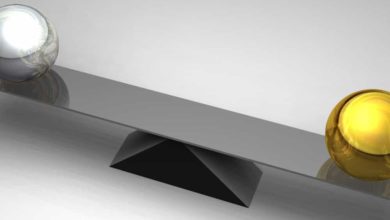According to the Agency for Healthcare Research and Quality, physician burnout is “a long-term stress reaction marked by emotional exhaustion, depersonalization, and a lack of sense of personal accomplishment.” Physician burnout is said to affect many practicing physicians today, so it’s imperative for future physicians to avoid developing bad habits that will lead to burnout in their future careers.
Buckle up this blog will tackle 5 ways to avoid experiencing physician burnout and stop it before you even start working as a physician.
Acknowledge Feelings That Lead Stress
They say the first step to fixing a problem is acknowledging you have a problem. Physician burnout is not something that’ll collapse on a physician at any given moment. While a physician may feel the symptoms seemingly hit all at once, all that stress and build-up has actually been accumulating for many months, or even years. Physicians have just conditioned themselves to push through the stress and suffering- a typical response from hardworking physicians. Future physicians should reflect on the moments throughout the day when they’re feeling stressed/burnt out, and assess the situation accordingly to relieve the stress instead of letting it accumulate.
Delegate Non-clinical Tasks to Avoid Being Overwhelmed
With the rise of technology, hospitals and clinics across the globe have implemented EMR (electronic medical record) systems. Charting in these systems has caused a great deal of stress among physicians. These systems can often be complicated to learn and take time away from doing what physicians truly love: treating others. For a more comprehensive review of the tasks that can be delegated in EMRs as well as other non-clinical tasks, check out the following article.
As a student, learn to spot where your support system can help you with non-critical tasks and learn how to ask for help, and delegate the small things before they become big problems.
Take Time off Work – Including Studying – To Avoid Exhaustion
Feelings of exhaustion and stress are your body telling you it needs a break. It’s a common practice for physicians to overwork themselves by putting their patients first. While of course this a noble thing to do, it becomes an issue when physicians leave no room for themselves. By physicians working themselves to their core it’s inevitable they’ll become burnt out.
As a future physician, make sure to take time off work and studies when feelings of stress start to creep in, and you’ll see major improvements in your health upon your return to your normal workload. For more information on the benefits of taking time off, future physicians should check out the following excerpt from The Prospective Doctor podcast.
Be Physically Active to Stay Healthy
As future physicians, I’m sure you’re well aware of the positive effects exercise has on stress levels. But believe it or not, physicians tend to get so caught up in their work that they neglect a major stress defeater: exercise. For a more comprehensive review of the positive effects of exercise on stress levels, future physicians should read the following article from the Mayo Clinic.
Eat a Healthy Diet to Maintain Proper Energy.
As future physicians, you will be overworked at times. During these times it’s easy to grab a Red Bull or Monster to give you that extra energy to complete the day. But you want to avoid these highly sugary drinks because although they’ll give you the rush you need, it’s followed by a steep crash. Instead, opt for a healthy diet. According to an article published by the Harvard School of Public Health, “early research suggests that certain foods like polyunsaturated fats including omega-3 fats and vegetables may help to regulate cortisol levels.” Cortisol is a stress-regulatory hormone your body naturally produces. A diet adequate in omega-3 fats and vegetables will regulate your body’s stress levels. A vital component to battling physician burnout.
If you learn to reach for healthy foods (and meal plan so you have them around when you need them) now, you’ll have those healthy habits ingrained before you hit the daily stresses and pressures of clinical practice.



